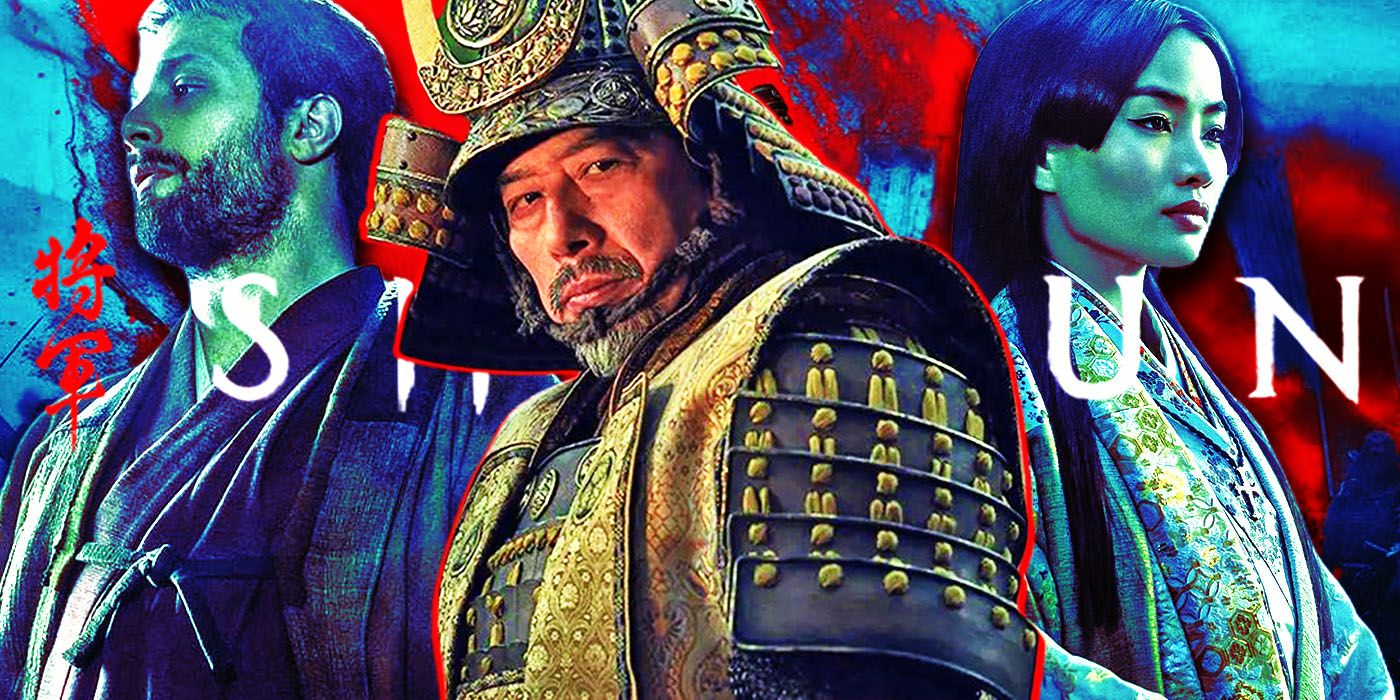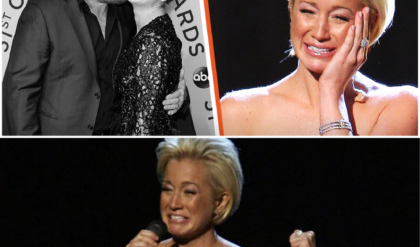With its last two episodes, Shōgun demonstrates how to do morally grey characters and storylines correctly after the end of the TV Golden Age.

FX’s hit historical drama Shōgun (based on the 1975 novel of the same name by James Clavell) finally reached its endgame. In the year 1600, the nation of Japan is locked in a lose-lose power struggle between the ruling regent Damiyos and their respective regions, as they wait for the late emperor’s heir to come of age. At the same time, foreign powers like the Portuguese, Dutch, English and their respective Catholic and Protestant institutions arrived at Japanese shores to influence daily and political events for their own ends. At the center of it all, Lord Yoshii Toranaga (Hiroyuki Sanada) has a grand vision for the country. He envisions a Japan that can finally be left alone as an island to itself, with no war from within and outside. Most importantly, he dreams of a Japan where he can assume sole power as the Shōgun. With his principal rival, Lord Ishido Kazunari (Takehiro Hira) — a former peasant-turned ruling regent who holds members of Toranaga’s family captive in Osaka Castle — Toranaga has one final gambit to turn the Damiyos against Ishido and entrench himself as Japan’s ruler.
Toranaga’s three greatest allies — the English Protestant pilot John Blackthorne (Cosmo Jarvis), the formidable noble and Toranaga’s right-hand woman Toda Mariko (Anna Sawai), and the scheming but powerful Lord of Izu, Kashigi Yabushige (Tadanobu Asano) — are sent to bargain with Ishido in the ultimate power play to finally turn the tide of war.But peace and solitude must come at a price, both personal and collective. None of the players involved may be ready to pay the toll, while some aren’t even aware that they have to pay at all.
Shōgun’s Finale Is a Bittersweet & Fitting Resolution
By Taking an Objective Approach, Shōgun Stands On Its Own Merits, Away From Comparisons To Previous Shows
Shōgun spent its last few episodes building up to the final power play. Namely, the one that would grant the noble yet calculating Toranaga absolute power over the infighting Damiyos, their allies, their ruling regions, and Japan as a nation. Like many films and TV shows of its kind, Shōgun had its share of betrayals, back stabbings, character deaths, heartbreaks, twists and turns. All of these seemed like they were leading to an explosive confrontation between all sides. Instead, Shōgun’s grand finale, consisting of the episodes “Chapter Nine: Crimson Sky” and “Chapter Ten: A Dream of a Dream,” took a different and surprisingly realistic approach. In fact, the long-awaited final confrontation doesn’t occur on the battlefield.
The fight between good and evil and the war for absolute power and the future of the nation wasn’t a huge, showstopping epic-scaled war fought by fully-armed legions in armor. Rather, the climax took place in the courts and halls of Osaka Castle. Everything was orchestrated by the assured and unyielding will of Toranaga’s closest and most trusted ally, Mariko. Here, she bartered her own precious and politically valuable life for those of Toranaga’s female family and friends. In a prolonged and effective scene led by Sawai, the seeds for Toranaga’s victory are sown. Mariko — as a character of great power, social standing, Catholic faith, loyalty to her Japanese Lord and the last member of a disgraced family — was a key player in this epic power struggle. She held value to all opposing parties, and she knew it and used it accordingly. It’s fitting, if bittersweet, that she was the one to make the final move and sacrifice that finally ended the Warring States Period, and bought the people of Japan nearly two centuries of peace. Her death is one of the most meaningful in a series where there were kills aplenty.
Shōgun’s finale is also more tense than terrifying. It simmers rather than reaches a roiling boil, even in its most intense moments. A good example of this was when the castle was besieged by assassins, and Mariko made her heroic final stand to protest treason and protect Blackthorne and the captives. Even after the dust settled and the fires died out, the tension and intrigue remained. This led Blackthorne to pledge his loyalty to the people of Japan, eschewing his selfish ambitions. Most notably, he abandoned his original goal of overseeing and causing Yabushige’s inevitable, pitiable and glorious downfall. The ending of “Crimson Sky” — a chapter filled with twists, intrigue and treason, the latter carried out by Ishido and the chronically treasonous Yabushige — left on a nail-biting, explosive note. Meanwhile, “A Dream of a Dream” was the story’s overall after-action analysis. While it’s light on action when compared to previous events, this episode still delivered the climactic final blows of death and rebirth. For many viewers accustomed to big battles and climaxes, Shōgun’s soft-spoken approach might be jarring, and even a letdown. But Shōgun was never a sensational story; it was a tale with its two feet planted firmly on Earth, and it told its story as such. While Shōgun chose not to go out with a bang, it certainly didn’t whimper.
Since its premiere in February 2024, Shōgun drew excessive comparisons to Game of Thrones because of its feudal setting, violence, inordinate death counts and shifting, edgy character types. However, these parallels are unfair. Ever since Game of Thrones ended on a controversially poor and noncommittal note in 2019, it seemed as if every network attempted to fill in the vacuum it left in its wake. These copies sought to recapture the cynicism and brutality that HBO’s adaptation of George R.R. Martin’s A Song of Ice and Fire offered. Audiences went out of their way to find something similar to HBO’s dark fantasy, while others grew tired of the darkness. Shōgun, while it had some surface-level similarities to Game of Thrones, proved to be a very different sort of beast, and rightfully so. Although technically fiction, Shōgun is planted firmly in real history. Clavell’s novel is a fictionalized retelling of a pivotal period in Japan’s history, specifically the transition from the violent Warring States Period to the peaceful but isolated Edo Period. Although some details such as people’s names and the circumstances of certain individuals were changed, Clavell and both TV adaptations of his book remained faithful in their unflinching depictions of Japanese history and culture at the turn of the 17th Century. There was a point and a humanist ending to Shogun’s darkness and violence, whereas Game of Thrones had little to offer beyond misery, death and a laughably centrist overall message.
Shōgun’s Cast Delivers Believable Drama & Heartbreak
Shōgun Has a Cast of Difficult and Complicated Characters Who Straddle the Line of Good And Evil
The 2024 adaptation — overseen by Clavell’s daughter Michaela as producer with the help of showrunners Rachel Konda and Justin Marks — stayed true to the novel’s original tone. Despite some necessary creative liberties, the new Shōgun was an honest depiction of late Warring States Japan. From its start to its tragic end, Shōgun was always honest in its depiction of violence and the attitudes thereof. The same went for its displays of complex human interactions, culture shocks, language barriers and the state of life and humanity during a period of intense change and power struggle. While not shy of gore and unflinching in its depiction of moral ambiguity, there is nothing sensationalized about Shōgun’s brutality. Even the fraught and bittersweet climax feels down-to-earth, for all its cinematic flair and touches. The characters started and ended the show equally complex, all deeply affected by their own actions and the events that unfolded in their own ways. Even if some characters were more sympathetic than others,Shōgun eschewed simplistic distinctions between “heroes” and “villains.”
This was not done in the same way as previous prestige dramas up to this point, such as the aforementioned Game of Thrones or Breaking Bad. In these shows and their many copies, almost every character was an edgy and nihilistic anti-hero who had more in common with a juvenile power fantasy than anything based in reality. They indulged in cynicism for the sake of it, and confused misanthropy for pathos. Shōgun took a different approach; one that was decidedly more objective and detached. It didn’t glorify its characters, but it didn’t demonize them or their historical counterparts, either. There were no apologies and sensationalism; just people surviving and playing a dangerous political game for their personal survival and that of an entire country’s populace.
These characters’ nuances would not have been possible without their talented actors’ performances. The aforementioned Sawai as Mariko is one such example of a strong character. Her calm demeanor, femininity, steely persona and barely-veiled vulnerability made for one of historical fiction’s greatest characters. Mariko carried some of the finale’s greatest moments, such as fighting with a naginata against hordes of unwilling guards and her argument with Ishido. Even her post-mortem in “A Dream of a Dream” carried lots of weight and tragedy. Cosmo Jarvis as Blackthorne also held his own in the finale. Like Mariko, he was a similarly heroic figure, albeit one who was deeply flawed. He even made his own attempts at power and influence. Jarvis got his chance to display Blackthorne’s morality, as he bid his own life visa seppuku for the village that Toranaga punished after the destruction of Blackthorne’s boat. Although everything once again turns out to be part of Toranaga’s machinations, it’s a powerful moment that earns Blackthorne respect and status alongside Toranaga as one of the most complicated yet admirable heroes of recent memory.
Tadanobu Asano especially leaned into his character, Yabushige. Clearly, he reveled in playing Shōgun’s equivalent of Starscream to Toranaga’s Megatron. The traitorous and deceitful Yabushige was as close to a traditional villain as one can get in a story of ever-changing shades of gray. He was driven less by power than a selfish desire to survive and indulge in his perverse bloodlust. After so many series that emphasized the cruelty of their characters while casting all levity and humanity aside, it was refreshing to see an antagonistic character who was just as fun and witty as he was dangerous and petty. Yabushige is one of Shōgun’s unlikeliest yet most frequent sources of dry wit and comic relief. This was still the case even during his vicious end by seppuku, where he was allowed dignity in the audience of Toranaga. Asano lends his own brand of likability and humanity to this loathsome, laughable and terrifying character, making his few sympathetic and even admirable moments some of the most moving and memorable of the series. Although he lost this game for power and conquest, he was given a glimpse into his nation’s future. He even managed to pinpoint the unspoken flaws in the rest of the cast, calling out the inherent short-sightedness of the power plays and politics that everyone threw their lives for. Sometimes, it’s the villain who speaks the truth, and Yabushige’s brand of it certainly hit home.
ShōGun Is Morally Gray & Leaves the Viewer Room To Speculate
ShōGun’s Fictionalized Portrayal of History Is Unglamorous Without Being Misanthropic or Sensationalized, Making It Stand out From TV’s Golden Age of Anti-Heroes
Even Toranaga — ostensibly the protagonist and moral center of this turbulent tale — is never given heroic treatment or adulation. He isn’t a moral paragon, he isn’t infallible, and he isn’t romanticized. He’s a political and strategic chessmaster with an innate sense of the human condition. Ironically, he withholds his own humanity, and struggles to show it to others, save for only a few scant individuals. He kills and subjugates without hesitation, sacrifices those he loves and trusts, yet shows great remorse in only his most vulnerable and private moments, thanks to Sanada’s understated performance. He has a grand vision for Japan that borders on what he believes to be utopia. The ensuing Edo Period where he (or more accurately, his historical counterpart, Ieyasu Tokugawa) assumes power would indeed be an era of peace and cultural flourishing for the nation, one that would last until the Meijii Era in the 1860s.
Toranaga is a reconstruction of the kinds of characters who believed that utopia justified the means. In most tales, such characters would be the villain, or portrayed as antagonistic at best. While Toranaga does some things that contemporary viewers would consider terrible, he is still portrayed with respectable humanity and fallibility. Even as his gambit succeeds, his personal character remains up for question. Ironically, it’s the shiftless and disloyal Yabushige, in his brilliant and final exchange, who pins Toranaga’s character and weaknesses. Toranaga may be an idealistic utopian, but he’s just as power-hungry and ambitious as anyone else. Toranga is a nuanced and earthy take on the edgy anti-hero. He’s equal parts unscrupulous and honorable. He’s always ready to fight for the right thing, but he isn’t afraid to get his hands bloody and play dirty. In a landscape rife with dramas that star dark yet simplistic anti-heroes, someone as layered and actually complicated as Toranaga was incredibly refreshing.
Following up on this is moral complexity is how everything is not perfectly resolved by the series’ end. Blackthorne’s life in Japan, the slow rebuilding of the nation’s morale, the capital’s eventual move from Osaka to Edo and the fates of the Damiyos are all left to the imagination, at least to those unfamiliar with Japanese history. True to real life, the transition from a time of war to peace didn’t happen overnight. And even so, Shōgun’s resolution was still fitting. Although other contemporary shows tried, few garnered the mass appeal and success that Shōgun did. While it has a few missteps — such as the pervasive use of an HDR (High Dynamic Range) presentation that drained the color and life of its sumptuous art direction, the generic Hans Zimmer-esque score and predictable trailer-styled sound design — Shōgun, for its one season, kept the tradition of Golden Age TV alive for just a little longer. It gave this era of prestige TV dramas just enough time to, perhaps, leave on a good note.
While neither wholly perfect nor original, Shōgun did what it came on TV to do, and did it well. It also ended on the only note it could: one of resolution and open-endedness, just satisfying and final enough to leave viewers sated. It also opened the door to more possibilities for international TV. Stories and historical accounts from around the world are now open for American adaptations, dramatizations and discoveries. Shōgun took the formula of the Golden Age of TV, brought it to its logical conclusion and improved on some of its weaknesses. It eschewed sensational and self-indulgent misanthropy for historical and human nuance. Most importantly, it did all of these on its own merits, making the need to compare it to its predecessors unnecessary and unfair. Perhaps future serial dramas and epics will go out of their way to draw comparisons to Shōgun? One can only hope that Shōgun’s successors aren’t overshadowed by memories of this otherwise impressive period drama the way it was tied to the lesser Game of Thrones, of all things.





